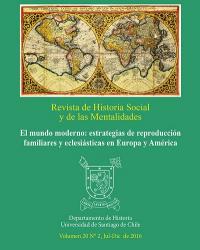CHANGES IN THE SPANISH FAMILY THROUGH THE SPANISH PRESS: THE EMERGENCE OF A NEW PATTERN OF PATERNITY AT THE END OF THE NINETEENTH CENTURY
Keywords:
Family, Paternity, Home, Education, PressAbstract
This work wants to research how family changed through the study of the model of paternity which was settled from the late nineteenth to the early twentieth centuries; so, the main objectives are to understand how the father figure was set and which factors were part of his idiosyncrasy. With this aim, on one hand, it has analyzed their realities within the family home, confirming its role such as the authority of the house and his work as an educator of their children; on the other hand, this paper focuses on the experiences of fatherhood away from home, investigating how it was his duty to earn money and to support the family and pointing out which dangers had the father in the public sphere (alcohol, gambling and prostitution). The source for this analysis was the Spanish press of the period, analyzing its speeches and the models of parenthood proposed. Finally, with all this, it was proposed to understand if the paradigm of fatherhood manifested new features or if he kept building from traditional values and practices.













